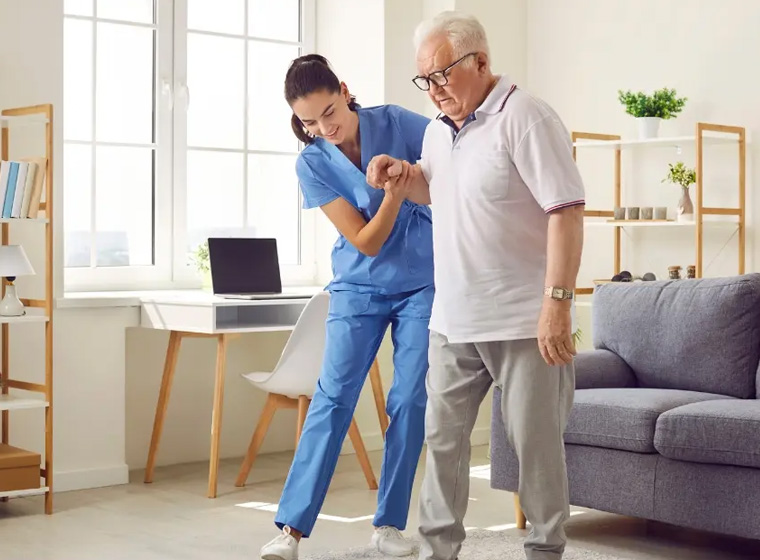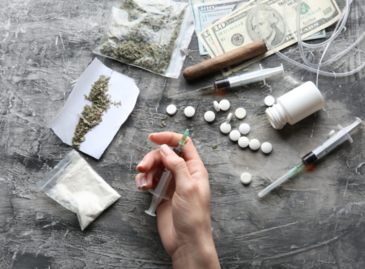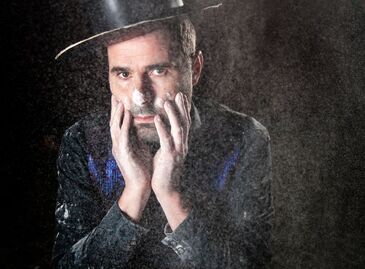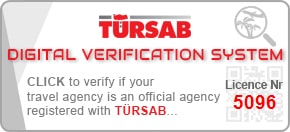
Stroke Rehabilitation: Programs, Disabilities, Prevention
A stroke is a medical condition that requires urgent medical attention. It can affect your well-being and restrict your body functionality due to brain damage. The effect of stroke can be overwhelming and challenging. However, stroke rehabilitation can help improve the quality of your life. But, there is an assured life and hope after this medical condition.
Stroke rehabilitation helps improve your body's functionality and enables you to relearn your lost skills due to sudden brain damage. It also helps protect you from developing new medical conditions, such as an injury due to a fall.
Who can give stroke rehabilitation?
Different health professionals can help with stroke rehabilitation. Strokes can affect any part of the brain. Therefore, rehabilitation may take another form, depending on the stroke patient. However, no matter your challenges, your health team and family can help improve your living conditions. The rehabilitation team often consists of the following;
Physical therapists
The team will help you perform physical activities to improve your balance and movement.
Doctors
A team of doctors, such as "Neurologists and Psychiatrists", will help you manage the general recovery process of stroke.
Occupational therapists
They will help you with your daily activities, such as eating and bathing.
Speech-language pathologist
The team will work with you to regain your speech and swallowing abilities.
Psychologist
This set of professionals will help you navigate your emotional problems, such as anxiety and depression.
Your stroke rehabilitation team may include other professionals such as Dietitians, Social workers, Rehabilitation Nurses, Vocational therapists, etc.
Where can you get Stroke Rehabilitation?
The kind of facility to visit if you want stroke rehabilitation programs may depend on the type of effect stroke has on your body. However, talk with your doctor about the best facility to suit you. Notable places you can visit for rehabilitation programs include;
Home environment:
You may invite specialists and social workers to your home to help with rehabilitation processes. Undergoing rehabilitation programs often come with comfort and convenience. But, it may come with some limitations. There is the likelihood that you won't be able to do some physical activities that may require specialized equipment.
Nursing homes:
Various nursing homes offer stroke rehabilitation programs. These programs include physical and occupational therapies that contribute to your recovery. However, the treatments may be less intense than those of hospitals.
Hospital rehabilitation unit:
Getting stroke rehabilitation in a hospital or clinic unit may require you to stay there for several weeks if they manage you as an inpatient. On the other hand, if you prefer to be addressed as an outpatient, you will need to fix dates for rehabilitation and therapies with your health team.
Factors that may affect stroke rehabilitation outcome
Recovering from the effects of a stroke may take time. Physicians suggest that how soon you may recover from a stroke and the number of skills you will regain are not predictable. However, some studies indicate that recovery can improve in 12 to 18 months of rehabilitation programs. Factors that may affect the stroke rehabilitation process may depend on;
Physical aspects:
It includes your home environment and work environment. Stair rails and grab bars can help you get more independent and improve your safety.
- The extent of damage to the brain and how soon you commence the rehabilitation programs.
- Your age may contribute to the outcome of rehabilitation. Generally, recovery comes easy and quicker in children and young adults than in older adults.
- Your family members, friends, and social networks can make an outstanding contribution to your recovery.
When can you commence stroke rehabilitation?
Generally, you will likely regain your lost skills quicker if you begin your rehabilitation on time. Research indicates that it is common for people to start stroke rehabilitation within the hospital in 24 to 48 hours. However, your health team will aim to;
- Prevent your risk of developing other poor medical conditions.
- Manage your present condition.
- Help you manage life-threatening issues that may occur due to stroke.
Disabilities that may occur due to stroke
A stroke is a medical condition when the nervous system stops functioning well. One of the significant components of the nervous system is the brain. However, the intensity of the disability that may occur due to stroke varies among individuals. It often depends on the part of the brain that gets damaged. Doctors suggest that stroke often causes six types of disabilities. They include;
Paralysis or loss of movement control
Stroke can affect the ability to control one's movement and body sensation. You may lose control of your body posture, walking, and swallowing. In addition, paralysis may occur or affect one side of your body. You will require your health team to manage paralysis with stroke rehabilitation programs.
Sensory disturbance
If you have a stroke, the sensory disturbance may set in. You might lose the ability to feel pain, touch, and temperature. The ability to control your bowel and bladder may also be lost. You might also feel numbness in some parts of your body. Generally, you may feel a sense of heaviness in your limbs and other body aspects.
Problems with talking or understanding languages
Losing the ability to write, speak and understand languages is a challenging stroke effect. You will require the service of speech therapies to regain this lost strength with rehabilitation. Often, a stroke may affect the left side of right-handed people's brains. In addition, when stroke affects the language control centers of the brain, it can lead to verbal impairment.
Loss of memory and thinking ability
A stroke can damage the side of the brain that controls learning, awareness, and memory. You may lose the ability to engage in normal mental activities or make plans.
Emotional disturbance
Since stroke can cause damage to a part of the brain, a change in personality and emotional stress can set in. Stroke may also cause sadness, fear, anger, and frustration. This effect may be due to the distress over an individual's mental and physical ability loss.
Problems with vision
Sometimes, a stroke can affect the part of the brain that helps receive, process, and interpret signals sent by the eyes. The eye muscles can also be affected by stroke. Someone with a stroke can lose half their sense of vision. It means the person can see only one side of what is in front of them.
What are the stroke rehabilitation programs available?
There are several stroke rehabilitation programs that your health team can place you on for quick recovery. However, the rehabilitation plan may depend on the type of disability or part of the body affected by stroke. These include;
Physical activities
Mobility exercises:
This type of physical activity can help improve your muscle coordination and strength. You can also undergo therapies that will aid your swallowing abilities.
Movement training:
Your physical therapist will help you learn to use mobility aids such as ankle braces, walkers, etc. Mobility aids will help you stabilize and balance your body weight while relearning how to walk.
Constraint-induced movement therapy:
Your therapist will help you limit the movement of the unaffected limb. You will progress to the phase where you learn how to move the affected limb to improve its function.
Range of motion therapies:
This treatment includes the passive, active, and active-assistive range of motion. You will undergo some exercises that will improve the functionality of your joints.
Reasoning impact and emotional activities
Reasoning disorder therapies:
Generally, this includes occupational and speech therapy. These therapies will help you regain your memory loss, problem-solving skills, social skills, and safety awareness.
Use of medications:
Your doctor may give you medication to manage depression.
Communication therapy:
A speech therapist will help you regain your speaking, listening, and writing abilities.
Psychological evaluation:
Your health team will allow you to participate in social groups. They will also help to counsel you to avoid depression and anxiety.Furthermore, you might require technology-assisted activities such as;
Robotic technology:
Robotic devices may help a stroke patient carry out repetitive motions to help the limbs regain their functionalities.
Wireless assistive technology:
An activity monitor will be used here. It will help contribute positively to your post-stroke recovery.
Using computer-based therapies or video games:
may help with awareness of reality.
In addition, some studies suggest that alternative medicine treatments can also help your recovery process. Treatments such as massage, acupuncture, and herbal therapies can also contribute to your recovery. Furthermore, biological therapies, for instance, stem cells, are still undergoing clinical research.
How can you prevent the reoccurrence of a stroke?
Prevention of stroke is a significant part of the stroke rehabilitation process. Research indicates that you may have to adjust your lifestyle. Faithfulness to the usage of medications prescribed by your doctor will also help prevent the reoccurrence of stroke. However, it would help if you spoke with your doctor to make an informed decision on the lifestyle changes. The following are the notable means of prevention;
- If you smoke, quit smoking: Smoking can put you at risk of stroke. It may raise your blood pressure and make your blood thicker. Your blood is likely to clot when it gets wider than needed.
- Maintain moderate weight and perform regular exercise: If you are overweight, you may be at risk of high blood pressure (hypertension) and other heart diseases.
- Carry out regular checkups for heart disease: Blood vessels leading to the brain can be blocked by blood clots due to heart disorders. However, surgery may be an option to remove the blood clot from the artery. Your doctor may prescribe medications to prevent blood clots from occurring.
- Manage your blood pressure: You are at greater risk of stroke when you have high blood pressure. See your doctor to help you reduce your blood pressure within the normal range. Sometimes, you may need to modify your diet or take medications prescribed by your doctor to keep normal blood pressure.
- Lower your cholesterol intake.
Conclusion
Getting a quick stroke rehabilitation can contribute to how soon you will regain your lost skills and body functions. However, support from family and friends is also vital. They can help you find motivation and build confidence when you feel sad or depressed. In addition, you have to be patient and calm as they need constant reassurance at this time. Do not stop seeking medical advice when it is required. Always carry your health team along in every one of the steps you take towards recovery. Your chances of recovery will be high if you often carry out your rehabilitation programs.
Stroke Rehabilitation Price Turkey



